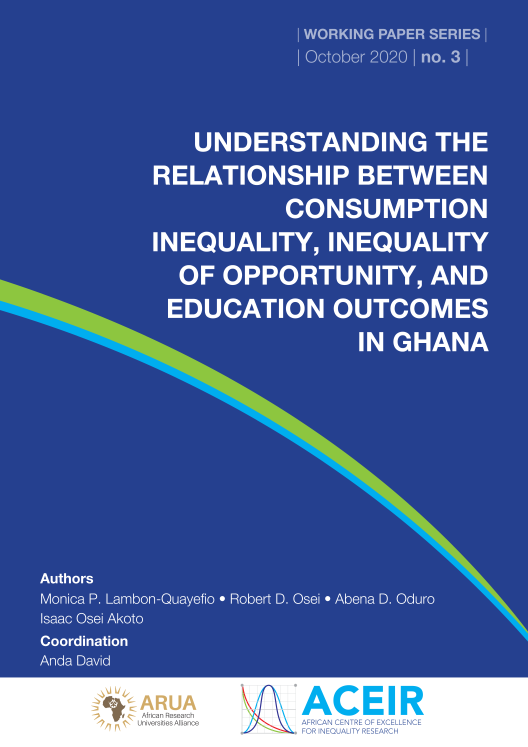Understanding the relationship between economic inequality, inequality of opportunity and education outcomes in Ghana
Monica P. Lambon-Quayefio, Robert D. Osei, Abena D. Oduro, Isaac Osei Akoto
ACEIR Working Paper no. 3, October 2020

Using a two-wave nationally representative panel data, the study finds that the contribution of unfair inequality (which is inequality driven by factors beyond the control of individuals) to total consumption inequality in Ghana is not trivial. The authors find that inequality of opportunity accounts for about 8.1% of total consumption inequality in Ghana. Place of birth, the locality of residence and parental education and the presence of parents within the household contribute significantly to inequality of opportunity. While consumption inequality negatively affects learning outcomes, its impact flows entirely through inequality of opportunity. Policymakers are required to be more deliberate in the distribution of social infrastructure and other economic resources across the country so as not to concentrate resources in particular areas, thus leading to the neglect of other parts of the country. Policies that ensure access to education in the current generation are encouraged to minimise unfair inequality in the future. Read more
